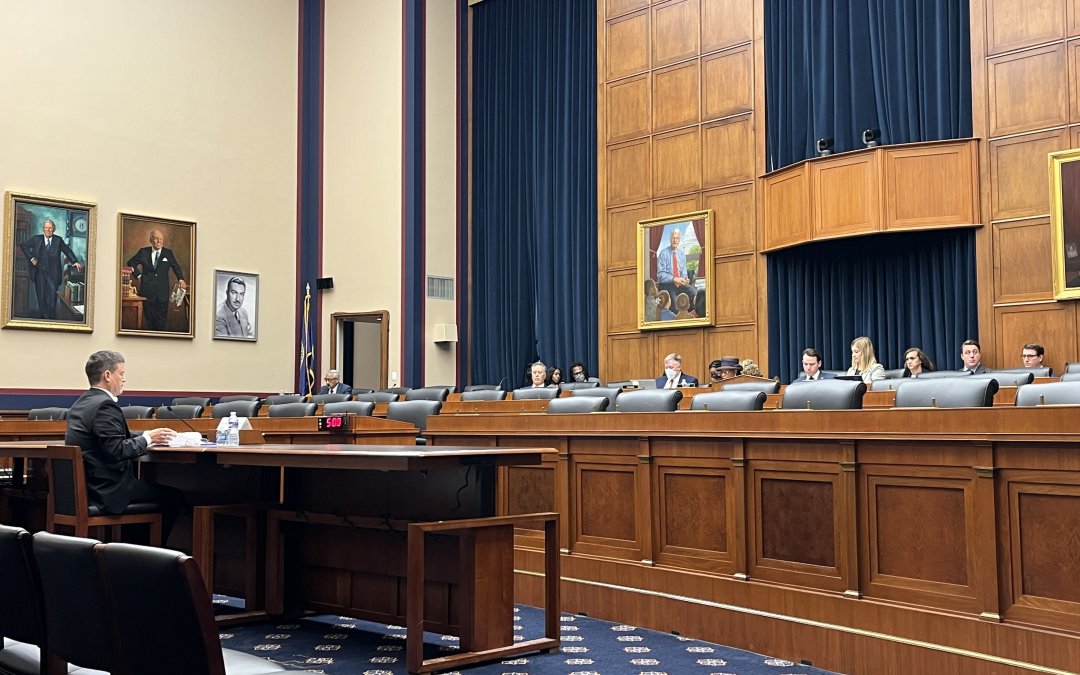WASHINGTON — Fearing executive overreach, Republican lawmakers hammered the Assistant Secretary of Labor for the Occupational Safety and Health Administration about the agency’s new rules for excessive heat in the workplace on Wednesday.
Lawmakers questioned Douglas L. Parker, the Assistant Secretary of Labor for OSHA, about the agency’s effectiveness in keeping workers safe during a subcommittee hearing on workforce protections. More than a year after the subcommittee met with Parker to discuss the Supreme Court’s decision to strike down OSHA’s Emergency Temporary Standard, which required COVID-19 vaccination in the workplace, as an overreach of executive power, Republicans expressed skepticism of OSHA’s recent rules for excessive heat in the workplace.
With new standards for workers experiencing extreme weather conditions, such as requirements for sufficient drinking water and allowing regular breaks in the shade, Republicans fear the regulations could lead to more executive overreach in the agriculture industry.
“It has taken its eye off the ball when it comes to protecting worker safety, focusing instead on political goals that could not win support through the democratic channels of our government,” House Education and Workforce Subcommittee Chair Rep. Kevin Kiley (R-Calif.) said. “The result has been harmful and ill-considered policies that have compromised our system of checks and balances.”
Kiley was accompanied by his republican colleagues, including Rep. Mary E. Miller (R-Ill.), as he expressed his concerns about OSHA and its overreach into areas he felt were reserved for the democratic process. The Emergency Temporary Standard for COVID-19 vaccines required workers to comply with vaccination or face unemployment. In January 2022, SCOTUS ruled in a 6-3 decision against the mandate. With OSHA developing rules to address excessive heat, Miller expressed concerns about the agriculture industry facing the same ultimatum.
“It would have terrorized our economy if the American workers refused to comply and it would have put 84 million American workers out of work,” Miller said. “But, now I’m troubled that you’re targeting farmers in your quest for power and threatening to shut down the agriculture industry because it’s hot outside in the summer.”
Across the aisle, Democrats support OSHA’s efforts and have begun introducing heat stress legislation to protect workers experiencing excessive heat both indoors and outdoors.
“I would challenge the gentlelady from Illinois to work in extreme heat, in a farm, for protracted hours,” said Rep. Mark Takano (D-Calif.), “to see whether or not she thinks that workers should be protected from extreme heat.”
Takano, an advocate for excessive heat rules such as required breaks in cooler locations and sufficient water, said he believes providing workers with rest will lead to productivity gains.
More imminently, Parker told the committee he is concerned about the impact a potential government shutdown could have on OSHA and its ability to function.
“To truly embrace health and safety as a core value requires a strong OSHA,” Parker said, “A government shutdown followed by significant budget reductions would severely compromise our ability to protect workers.”
During a government shutdown, OSHA’s outreach activities, assistance to employers, development of materials to prevent heat illness and ability to conduct proactive program inspections would end.
“We’ll be limited to a more reactive mode,” Parker said. “Unfortunately, that only happens after a worker has the courage to complain or a worker is already sick or dead from heat.”
With the government shutdown looming, several lawmakers are calling for bipartisan action in order to support America’s workforce and prevent unnecessary harm.
“Today’s subcommittee hearing on workforce protections should be listened to and taken into consideration,” Rep. Haley M. Stevens (D-Mich.) said. “We should put gamesmanship aside. We’ve got plenty of solutions at the table. There’s no need for a Republican shutdown.”

